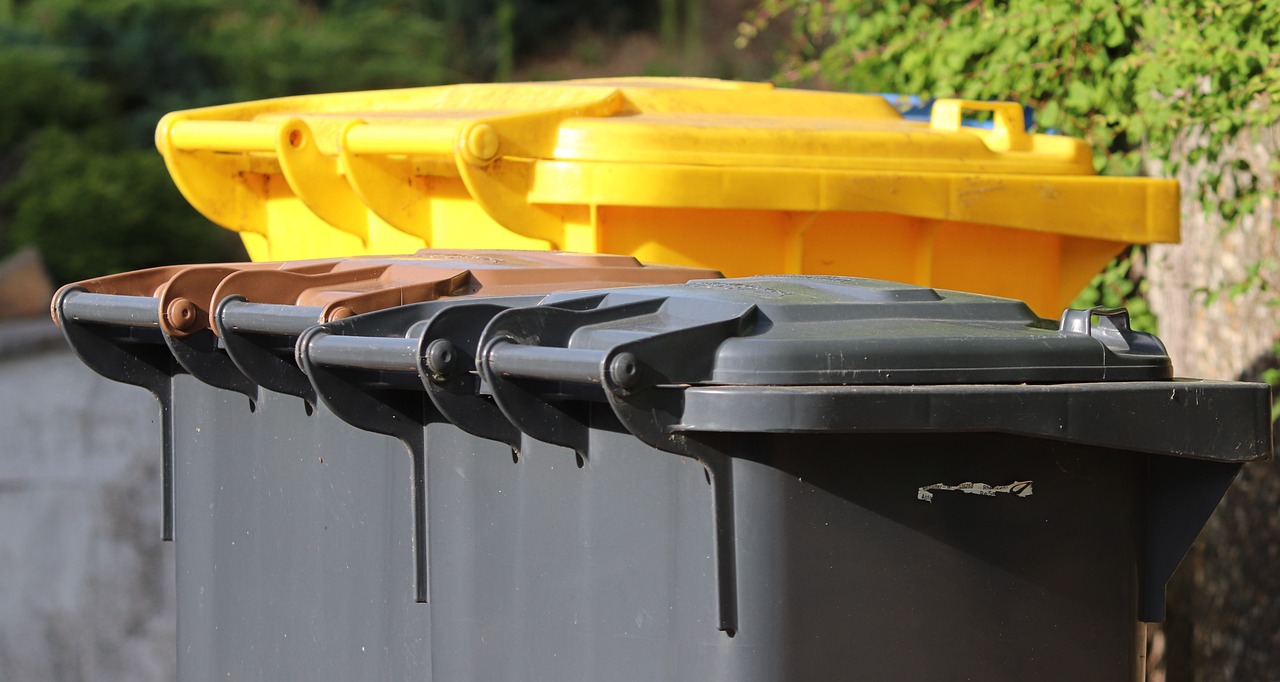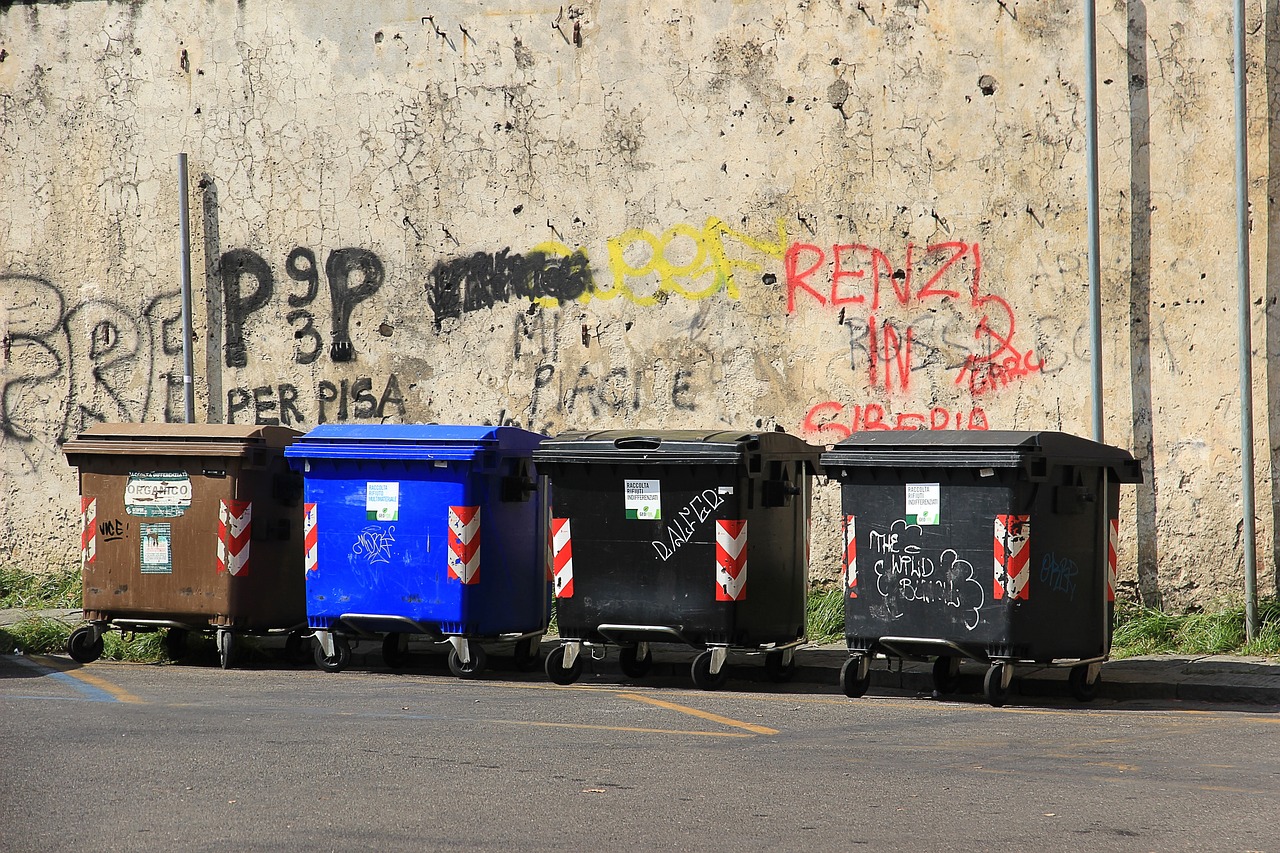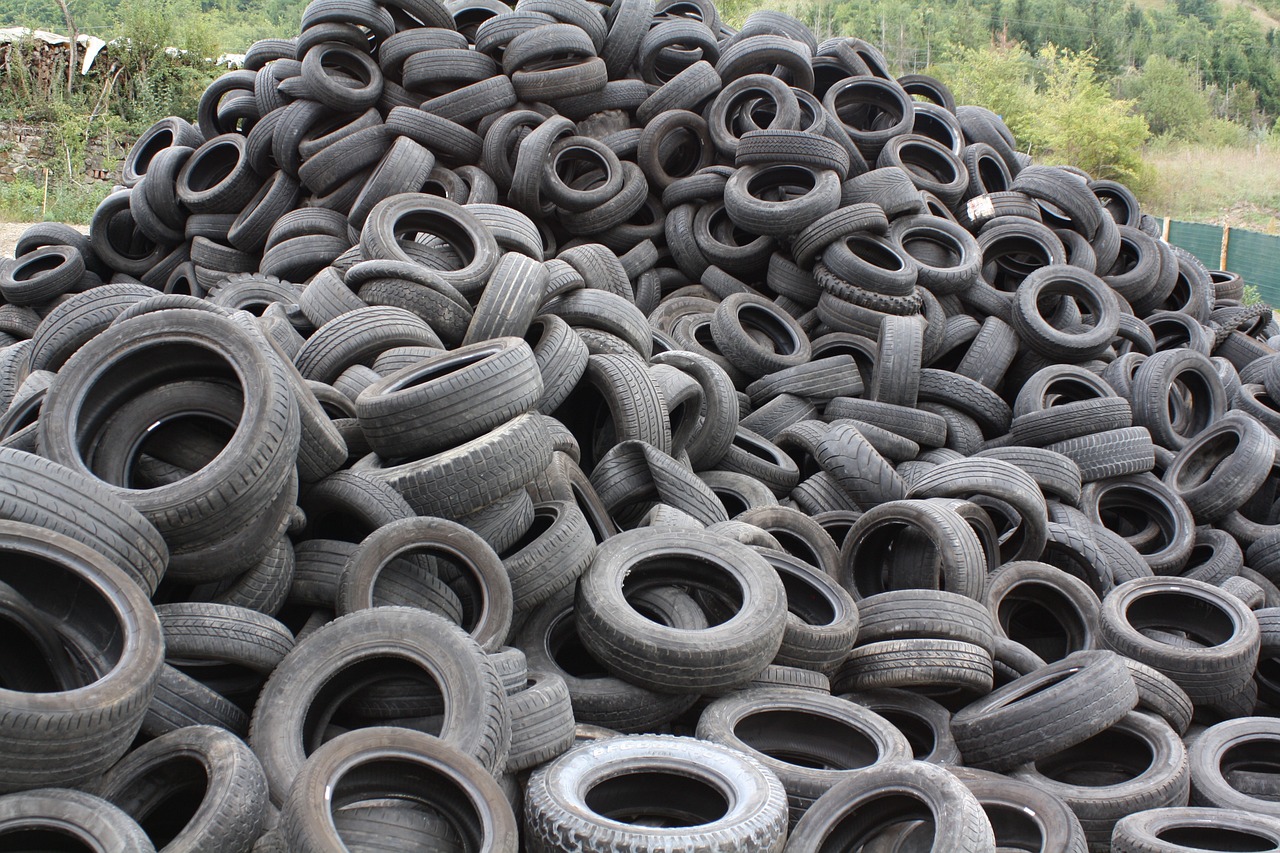The tourism industry is a double-edged sword when it comes to waste management. On one hand, it generates significant economic benefits, creating jobs and stimulating local economies. On the other hand, it contributes to an alarming increase in waste production, putting immense pressure on local waste management systems. This article delves into the intricate relationship between tourism and waste management, exploring the responsibilities that come with welcoming travelers, the challenges faced by destinations, and innovative solutions that are being implemented to foster sustainability.
As more people travel the world, the amount of waste generated in popular tourist destinations skyrockets. Imagine a beautiful beach that attracts thousands of visitors each day; the sheer volume of waste—from plastic bottles to food wrappers—can overwhelm local infrastructure. In fact, studies indicate that tourist hotspots can see a waste generation increase of up to 50% during peak seasons. This spike necessitates effective waste management strategies that not only address the immediate concerns but also ensure the long-term sustainability of these cherished locations.
Tourism businesses are increasingly recognizing their role in this equation. Many are stepping up to the plate, adopting innovative waste management practices that aim to minimize their ecological footprint. For example, hotels and resorts are implementing comprehensive recycling programs, while some are exploring cutting-edge waste-to-energy technologies that convert waste into usable energy. These initiatives not only help in reducing the volume of waste sent to landfills but also promote a culture of sustainability among both staff and guests.
To illustrate the effectiveness of these initiatives, let’s look at some successful case studies. For instance, cities like San Francisco and Amsterdam have implemented robust waste management systems that focus on recycling and composting, achieving waste diversion rates of over 80%. Such examples serve as beacons of hope, showcasing how effective waste management can lead to cleaner, more sustainable environments, while also enhancing the overall tourist experience.
However, the journey toward effective waste management in tourism is not without its hurdles. Seasonal fluctuations in tourist numbers can lead to inconsistent waste generation patterns, making it challenging for local authorities to allocate resources effectively. Additionally, many destinations face limited financial and logistical resources, which can hinder the implementation of sustainable practices. This is where the role of government policies becomes crucial. By providing frameworks and incentives, governments can encourage tourism businesses to adopt sustainable waste management strategies, paving the way for a greener future.
Community involvement is another vital aspect of effective waste management in tourist areas. When local communities engage in waste management initiatives, it fosters a sense of ownership and responsibility. Programs that involve residents not only enhance the effectiveness of waste management efforts but also ensure that sustainability becomes a shared value. This collaboration between local businesses, government, and the community can lead to innovative solutions tailored to the unique challenges of each destination.
As we look to the future, the importance of educating tourists cannot be overstated. Travelers must be made aware of their impact on local environments and the importance of responsible waste disposal. Simple actions, such as using reusable water bottles or participating in local clean-up events, can significantly reduce waste generation. Furthermore, technology is playing an increasingly pivotal role in enhancing waste management efficiency. From smart waste bins that monitor fill levels to data analytics that optimize waste collection routes, these advancements are helping to streamline processes and reduce the overall waste footprint of tourist destinations.
In conclusion, the tourism industry holds a significant responsibility in shaping waste management practices. By embracing innovative solutions, fostering community involvement, and prioritizing education, the sector can mitigate its environmental impact while continuing to provide unforgettable experiences for travelers. The path to sustainability may be challenging, but with collective effort and commitment, it is certainly achievable.

Tourism is often seen as a beacon of economic growth, but it comes with a hefty price tag in terms of waste generation. When tourists flock to a destination, the amount of waste produced can skyrocket, placing immense pressure on local waste management systems. Imagine a small town that typically handles a few tons of waste per day suddenly facing the influx of thousands of visitors during peak season. This surge not only complicates waste collection but can also overwhelm existing infrastructure.
The impact of tourism on local waste generation can be broken down into several key areas:
According to a study conducted by the World Tourism Organization, waste generation in popular tourist destinations can increase by up to 50% during peak seasons. This statistic underscores the urgent need for effective waste management strategies tailored specifically for tourist-heavy areas.
Moreover, the impact of tourism on local waste generation is not merely quantitative; it's also qualitative. Many tourist activities contribute to waste that is challenging to manage. For instance, events such as festivals or concerts attract large crowds and generate substantial waste, often without adequate recycling or disposal measures in place. This situation can lead to environmental degradation and negatively affect the local community's quality of life.
In light of these challenges, it's crucial for local governments and tourism businesses to collaborate on developing sustainable waste management practices. This collaboration can take many forms, such as:
Ultimately, the tourism industry must recognize its role in waste generation and take proactive steps to mitigate its impact. By adopting sustainable practices and engaging both tourists and locals in waste management efforts, destinations can preserve their natural beauty and ensure that tourism remains a viable economic driver for years to come.
Q: How does tourism increase waste generation in local areas?
A: Tourism increases waste generation due to the influx of visitors who produce more waste than local residents, especially in terms of single-use plastics and food packaging.
Q: What are some effective waste management strategies for tourist destinations?
A: Effective strategies include implementing recycling programs, promoting responsible tourism, and investing in waste management infrastructure to handle seasonal fluctuations.
Q: Why is community involvement important in waste management for tourism?
A: Community involvement fosters a sense of ownership and responsibility, enhancing the effectiveness of waste management programs and ensuring long-term sustainability.

As the tourism industry continues to expand, so does its responsibility to manage waste effectively. The good news is that many businesses within this sector are stepping up to the challenge with innovative waste management solutions that not only aim to reduce waste but also promote sustainability. Have you ever thought about how a simple act can lead to significant changes? In the tourism world, this can be as straightforward as implementing a recycling program or adopting waste-to-energy technologies.
One of the most exciting developments in waste management is the rise of recycling initiatives. Hotels, resorts, and restaurants are increasingly incorporating comprehensive recycling programs that encourage guests to sort their waste. Imagine checking into a hotel where recycling bins are as prominent as the welcome desk! These initiatives not only help in reducing landfill waste but also educate visitors about the importance of recycling. It's a win-win situation—guests feel good about contributing to environmental efforts, and the establishments can proudly showcase their commitment to sustainability.
Moreover, the concept of waste-to-energy technologies is gaining traction in tourist hotspots around the globe. This innovative approach involves converting waste materials into usable energy, such as electricity or heat. For example, some destinations have started to use organic waste from restaurants and hotels to produce biogas, which can then power their facilities. This not only minimizes waste but also provides a renewable energy source that can significantly reduce operational costs. Isn't it fascinating how waste can be transformed into something valuable?
To illustrate the impact of these solutions, let's take a look at a few case studies:
| Destination | Solution Implemented | Results |
|---|---|---|
| Bali, Indonesia | Community-based recycling program | Increased recycling rates by 60% |
| Sweden | Waste-to-energy plants | Converted 99% of waste into energy |
| Maldives | Plastic waste reduction initiatives | Decreased plastic waste by 30% |
These examples show how effective waste management solutions can lead to remarkable outcomes. But it doesn't stop there! The tourism industry is also embracing the use of technology to enhance waste management practices. Smart waste bins equipped with sensors can monitor waste levels and optimize collection schedules, ensuring that bins are emptied before they overflow. This not only improves efficiency but also reduces the carbon footprint associated with waste collection. Isn't technology amazing?
In addition to these innovations, many tourism businesses are focusing on educational campaigns to raise awareness among tourists about responsible waste disposal. By providing information on how to properly dispose of waste, hotels and tour operators can encourage visitors to participate actively in sustainability efforts. Imagine a world where every traveler leaves a destination cleaner than they found it—this is the goal of these educational initiatives.
In conclusion, the tourism industry is making significant strides in adopting innovative waste management solutions. From recycling programs to waste-to-energy technologies and smart waste management systems, these initiatives not only reduce waste but also foster a culture of sustainability. As travelers, we can play our part by supporting businesses that prioritize eco-friendly practices. After all, every little effort counts in preserving the beauty of our planet for future generations!

The tourism industry is often criticized for its environmental impact, particularly in waste management. However, there are shining examples of destinations that have turned the tide, implementing effective waste management systems that not only reduce waste but also enhance the visitor experience. One such case is the island of Bali, Indonesia, which has faced significant waste challenges due to its booming tourism sector. In response, local authorities and businesses have collaborated to launch the "Bali Clean Sea" initiative, which focuses on reducing plastic waste and promoting recycling among tourists and residents alike. This initiative has seen a remarkable increase in recycling rates, with local businesses adopting eco-friendly practices and tourists being educated on responsible waste disposal.
Another noteworthy example is the city of Amsterdam, Netherlands, which has embraced a comprehensive waste management strategy that includes the use of smart waste bins and an extensive recycling program. These bins are equipped with sensors that monitor waste levels, allowing for optimized collection routes and reducing unnecessary trips. This tech-savvy approach not only minimizes the carbon footprint associated with waste collection but also encourages residents and tourists to engage actively in recycling efforts.
Additionally, the small town of Sedona, Arizona, has implemented a "Zero Waste" program aimed at diverting 90% of its waste from landfills by 2025. This ambitious goal is supported by community engagement initiatives, where residents and visitors are encouraged to participate in local clean-up events and educational workshops. By fostering a sense of community ownership, Sedona has seen a significant reduction in waste generation, demonstrating that when people come together, they can make a substantial impact.
These case studies highlight that successful waste management in tourism is not just about implementing systems but also about engaging the community, utilizing technology, and fostering a culture of sustainability. Each destination has tailored its approach to fit its unique challenges and opportunities, proving that with creativity and commitment, the tourism sector can lead the way in responsible waste management.

When it comes to waste management, community involvement is not just a nice-to-have; it's an absolute necessity. Think about it: the locals are the heartbeat of any destination. They know the ins and outs of their environment, and their active participation can lead to more effective and sustainable waste management practices. When communities engage in these initiatives, they cultivate a sense of ownership and responsibility that can transform the way waste is handled.
One of the most effective ways to foster community involvement is through education. By informing residents about the impact of waste on their environment, we can ignite a passion for sustainability. Workshops, local campaigns, and school programs can serve as platforms to educate the community about proper waste disposal methods, recycling, and the importance of reducing waste. When community members understand their role in waste management, they are more likely to participate actively.
Moreover, collaboration between local governments, businesses, and residents can lead to innovative solutions tailored to the specific needs of the community. For instance, organizing regular clean-up drives not only helps in keeping the environment clean but also brings people together, fostering a sense of unity and purpose. These events can serve as a rallying point for locals to share ideas and strategies for better waste management.
Consider this: when a community comes together to tackle waste management, it creates a ripple effect. Each small action contributes to a larger movement towards sustainability. Local businesses can support these initiatives by sponsoring events or providing resources, while residents can volunteer their time and effort. This collaborative approach can lead to the implementation of effective waste management systems that are both practical and culturally relevant.
In addition to clean-up events, establishing community recycling programs can significantly impact waste reduction. By setting up accessible recycling bins and educating residents on what can and cannot be recycled, communities can drastically increase their recycling rates. This not only reduces the amount of waste sent to landfills but also promotes a culture of sustainability.
Ultimately, community involvement in waste management is about creating a shared vision for a cleaner, healthier environment. It’s about empowering individuals to take action and make a difference. By working together, communities can develop innovative waste management strategies that not only address immediate concerns but also pave the way for a sustainable future.

The role of government policies in supporting waste management within the tourism sector cannot be overstated. These policies serve as a backbone for creating a structured approach to waste management, ensuring that both businesses and tourists are aligned in their efforts to minimize waste. Governments can introduce regulations that require tourism businesses to implement sustainable waste management practices, such as recycling and composting, thus setting a standard that all stakeholders must follow.
One effective approach is the establishment of incentive programs aimed at encouraging businesses to adopt eco-friendly practices. For instance, governments can provide tax breaks or grants to hotels and restaurants that demonstrate a commitment to reducing waste. This not only motivates businesses to participate but also fosters a competitive environment where sustainability becomes a selling point. Additionally, governments can implement mandatory waste reduction targets for tourism operators, compelling them to be more proactive in their waste management strategies.
Moreover, public awareness campaigns funded by government entities can play a significant role in educating both tourists and locals about the importance of waste management. These campaigns can highlight the impact of waste on local ecosystems and promote responsible behavior among visitors. For example, a campaign might feature informational signage in multiple languages at tourist hotspots, guiding visitors on how to properly dispose of waste and recycle materials.
In some regions, governments have also established collaborative partnerships with local businesses and non-profit organizations to create comprehensive waste management plans. These partnerships can lead to the development of community recycling programs, waste collection events, and educational workshops, all aimed at reducing the overall waste footprint of the tourism sector. By engaging various stakeholders, the government can foster a sense of shared responsibility, ensuring that everyone plays their part in maintaining a clean and sustainable environment.
To illustrate the effectiveness of government policies, consider the following table that outlines some successful initiatives from different countries:
| Country | Policy Initiative | Impact |
|---|---|---|
| Sweden | Strict recycling laws and waste-to-energy programs | Over 99% of waste is recycled or converted to energy |
| New Zealand | Zero Waste Strategy | Significant reduction in landfill waste, promoting circular economy |
| Germany | Green Dot system for packaging waste | High recycling rates and reduced environmental impact |
In conclusion, government policies play a vital role in shaping the waste management landscape within the tourism industry. By implementing regulations, offering incentives, and fostering community engagement, governments can significantly enhance the sustainability efforts of tourism operators. As we look towards the future, it is essential for governments to continue evolving their policies to meet the growing challenges posed by waste generation in tourist destinations.

The tourism sector is a vibrant and essential part of the global economy, but it comes with its own set of challenges, particularly in the realm of waste management. One of the most pressing issues is the seasonal fluctuations in tourist numbers. During peak seasons, areas can see a dramatic increase in visitors, leading to a corresponding rise in waste generation. This sudden spike can overwhelm local waste management systems that are often designed to handle a more consistent volume of waste throughout the year. Imagine a small town that usually generates 1,000 kilograms of waste daily. During peak tourist season, that number can balloon to 5,000 kilograms or more, creating a logistical nightmare for waste collectors and recyclers.
Another significant challenge is the limited resources available for implementing effective waste management solutions. Many tourist destinations, especially in developing regions, struggle with inadequate funding and infrastructure. This lack of resources can hinder the adoption of advanced waste management technologies and practices. For instance, while some destinations may want to invest in composting facilities or recycling programs, they often lack the financial means to do so. It's a bit like wanting to build a dream home but only having enough money for a small shed; the vision is there, but the resources just aren't available.
Moreover, the tourism sector often faces regulatory hurdles. Different regions have varying waste management laws and guidelines, which can complicate the implementation of standardized practices across multiple locations. For instance, a hotel chain operating in several countries may find it challenging to comply with each country's unique regulations regarding waste disposal and recycling. This inconsistency can lead to confusion and inefficiencies, as businesses struggle to navigate the complex landscape of environmental regulations.
Another aspect to consider is the lack of awareness among tourists regarding responsible waste disposal. Many travelers may not understand the local customs related to waste management or may not prioritize sustainable practices during their travels. This can result in increased littering and improper waste disposal, which ultimately burdens the local environment. To tackle this issue, tourism businesses need to invest in educational campaigns that inform visitors about the importance of waste management and encourage them to participate actively in sustainability efforts.
Finally, the impact of global events, such as pandemics or natural disasters, can disrupt tourism and waste management efforts. For instance, during the COVID-19 pandemic, many tourist destinations saw a dramatic decrease in visitors, leading to a temporary reduction in waste generation. However, as tourism resumes, the challenge will be to manage the surge in waste while adapting to new health and safety regulations. It's a constant balancing act, much like trying to juggle while riding a unicycle; one misstep can lead to chaos.
| Challenge | Description |
|---|---|
| Seasonal Fluctuations | Increased waste generation during peak tourist seasons can overwhelm local waste management systems. |
| Limited Resources | Inadequate funding and infrastructure hinder the adoption of effective waste management solutions. |
| Regulatory Hurdles | Varying waste management laws across regions complicate the implementation of standardized practices. |
| Lack of Awareness | Tourists may not understand local waste disposal customs, leading to increased littering. |
| Global Events | Events like pandemics can disrupt tourism and waste management efforts, creating new challenges. |
The main challenges include seasonal fluctuations in waste generation, limited resources for waste management solutions, regulatory hurdles, lack of awareness among tourists, and the impact of global events.
Tourists can help by being mindful of their waste disposal practices, participating in recycling programs, and following local guidelines for waste management.
Governments can create policies and provide incentives for businesses to adopt sustainable waste management practices, ensuring a cleaner environment for both residents and visitors.

When it comes to sustainability in tourism, education and awareness are the twin pillars that can elevate the entire industry. Imagine a world where every traveler understands their impact on the environment and actively participates in reducing waste. This vision is not just a dream; it's an achievable reality through effective educational programs and awareness campaigns. By informing tourists about the importance of responsible waste disposal and sustainable practices, we can foster a culture of environmental stewardship that resonates long after their trip ends.
Tourists often arrive at destinations with little knowledge of local waste management practices. Many are unaware that their actions, such as littering or improper disposal of recyclables, can have significant consequences on the environment. Therefore, it is crucial for tourism stakeholders—hotels, tour operators, and local governments—to step up and provide clear, engaging information. This can be done through various channels, including:
Moreover, integrating educational content into the travel experience enhances the overall enjoyment of the trip. For example, guided tours that focus on local ecology and sustainable practices can transform a mundane sightseeing experience into an enlightening journey. Tourists are more likely to remember their experiences when they learn something valuable along the way. This leads to a deeper appreciation for the destination and a commitment to preserving it.
However, education alone is not enough. It's essential to pair information with incentives that encourage tourists to adopt sustainable behaviors. For instance, offering discounts for those who use reusable water bottles or providing rewards for participating in local clean-up initiatives can motivate travelers to act responsibly. By creating a system where eco-friendly choices are recognized and rewarded, we promote a cycle of positive behavior that benefits both the environment and the local community.
In conclusion, enhancing tourist education and awareness is a vital step towards achieving sustainable waste management in the tourism industry. By equipping travelers with the knowledge and tools they need to make responsible choices, we can collectively reduce waste and protect our planet. The ripple effect of informed travelers can lead to a more sustainable future, where tourism and environmental conservation go hand in hand.
Q: Why is tourist education important for waste management?
A: Educating tourists helps them understand their impact on the environment and encourages responsible behavior, ultimately leading to reduced waste generation.
Q: What are some effective ways to educate tourists?
A: Effective methods include brochures, workshops, digital platforms, and integrating educational content into travel experiences.
Q: How can incentives encourage sustainable behavior among tourists?
A: Incentives such as discounts for using reusable items or rewards for participating in eco-friendly initiatives can motivate tourists to adopt sustainable practices.

In today's fast-paced world, the integration of technology into waste management is not just a luxury; it's a necessity, especially in the tourism sector. As destinations strive to handle the increasing waste produced by tourists, technology emerges as a beacon of hope, offering innovative solutions that streamline processes and enhance efficiency. Imagine a world where smart bins automatically sort recyclables from general waste, reducing contamination rates and increasing recycling efficiency. This is not just a dream; it's happening now, thanks to advancements in technology.
One of the most exciting developments in waste management technology is the use of smart waste bins. These bins are equipped with sensors that monitor waste levels and can communicate with waste collection services in real-time. This means that collection routes can be optimized based on actual need rather than fixed schedules, reducing fuel consumption and operational costs. For instance, cities like Barcelona have implemented smart waste management systems that have led to a significant reduction in waste collection costs and improved recycling rates.
Moreover, data analytics plays a crucial role in enhancing waste management practices. By analyzing data collected from various sources, tourism businesses can identify waste generation patterns and pinpoint areas where improvements can be made. This data-driven approach not only helps in optimizing waste collection but also assists in developing targeted educational campaigns for tourists. For example, if data shows that a specific tourist area generates excessive plastic waste, targeted initiatives can be launched to address this issue, such as providing more recycling bins or promoting alternatives to single-use plastics.
Another innovative solution is the use of waste-to-energy technologies. These technologies convert waste materials into energy, thereby reducing the amount of waste that ends up in landfills. In places like Sweden, waste-to-energy plants have become a cornerstone of waste management, generating electricity and heating for homes while minimizing environmental impact. By adopting such technologies, tourist destinations can not only manage waste more effectively but also contribute to energy production, creating a win-win situation.
Furthermore, mobile applications are emerging as valuable tools for educating tourists about responsible waste disposal. These apps can provide information on local recycling guidelines, waste disposal locations, and even tips for reducing waste while traveling. By empowering tourists with knowledge, these technologies encourage responsible behavior and foster a culture of sustainability. Imagine a tourist arriving at a new destination and being able to access all the necessary information about waste management practices right at their fingertips!
In conclusion, the role of technology in waste management within the tourism industry is transformative. By leveraging smart bins, data analytics, waste-to-energy technologies, and mobile applications, destinations can significantly improve their waste management practices. This not only enhances the sustainability of tourist areas but also sets a precedent for responsible tourism. As we move forward, it is essential for the tourism sector to embrace these technological advancements to create a cleaner, greener planet for future generations.
Technology enhances waste management by optimizing collection routes, improving recycling rates, and educating tourists on responsible disposal practices.
Smart waste bins are equipped with sensors that monitor waste levels and communicate with collection services, allowing for more efficient waste management.
Yes, waste-to-energy technologies can be implemented in tourist destinations to convert waste into energy, reducing landfill use and generating electricity.
Mobile apps provide tourists with information on local waste disposal practices, recycling guidelines, and tips for minimizing waste during their travels.

The future of waste management in the tourism industry is poised for a significant transformation, driven by a combination of consumer demand, technological advancements, and a growing awareness of environmental sustainability. As travelers become increasingly eco-conscious, the tourism sector is responding with innovative strategies aimed at reducing waste and promoting responsible consumption. One of the most exciting trends is the integration of smart technologies into waste management systems. For instance, cities and tourist destinations are beginning to deploy smart waste bins equipped with sensors that monitor waste levels in real-time. This technology allows for optimized collection routes, reducing fuel consumption and minimizing the carbon footprint associated with waste disposal.
Moreover, the concept of a circular economy is gaining traction within the tourism sector. This approach encourages businesses to rethink their waste as a resource, promoting practices such as recycling, repurposing, and upcycling. For example, hotels and restaurants are exploring ways to convert food waste into compost or energy, significantly decreasing the amount of waste sent to landfills. This shift not only helps in waste reduction but also enhances the sustainability of the entire tourism ecosystem.
Additionally, educational initiatives aimed at both tourists and local businesses are becoming more prevalent. By raising awareness about the importance of sustainable practices, such as reducing single-use plastics and participating in local recycling programs, the tourism industry can cultivate a culture of environmental stewardship. Tour operators and hotels are increasingly offering workshops and informational sessions to educate their guests about responsible waste disposal practices, ensuring that visitors leave a positive impact on the destinations they explore.
Another noteworthy trend is the collaboration between the public and private sectors to develop comprehensive waste management policies. Governments are recognizing the importance of supporting sustainable tourism through regulatory frameworks and incentives. For instance, many local authorities are implementing green certifications for businesses that adopt sustainable waste management practices, encouraging more establishments to follow suit. This collaborative approach not only enhances the effectiveness of waste management systems but also fosters a sense of community responsibility towards environmental preservation.
As we look to the future, it's clear that the tourism industry is on the brink of a major evolution in waste management practices. With consumers demanding more eco-friendly options and technological innovations paving the way for smarter solutions, the potential for sustainable transformation is immense. By embracing these trends, the tourism sector can not only reduce its environmental footprint but also enhance the overall experience for travelers, making sustainability a core component of their journey.
Tourism can significantly increase the amount of waste produced in local areas. When tourists flock to a destination, the demand for services and products rises, leading to more packaging waste, food waste, and other types of refuse. This surge in waste can overwhelm local waste management systems, making it crucial for destinations to implement effective waste management strategies.
Many tourism businesses are stepping up their game by adopting innovative waste management solutions. These include recycling programs that encourage visitors to sort their waste, composting organic materials, and even utilizing waste-to-energy technologies that convert waste into usable energy. These initiatives not only reduce the ecological footprint but also promote sustainable practices among tourists and locals alike.
Absolutely! There are several destinations that have successfully implemented effective waste management systems. For example, some cities have introduced comprehensive recycling initiatives and community clean-up events that engage both tourists and locals. These case studies serve as inspiration for other regions looking to enhance their sustainability efforts and manage waste more effectively.
Community involvement is vital for the success of waste management initiatives in tourist areas. When locals participate in these programs, they develop a sense of ownership and responsibility, which can lead to more effective waste management practices. Engaging the community not only helps in managing waste but also fosters a collaborative spirit that benefits both residents and visitors.
Government policies are essential in shaping waste management practices within the tourism sector. They provide frameworks and incentives for businesses to adopt sustainable waste management strategies. By establishing regulations and support systems, governments can encourage tourism operators to prioritize eco-friendly practices, ultimately leading to a cleaner environment.
The tourism sector faces several challenges when it comes to waste management. Seasonal fluctuations in tourist numbers can lead to spikes in waste generation that local systems may struggle to handle. Additionally, limited resources and funding for implementing effective waste management solutions can hinder progress, making it imperative for stakeholders to collaborate and find innovative approaches.
Educating tourists about responsible waste disposal is crucial in reducing waste generation. This can be achieved through awareness campaigns, informative signage, and engaging activities that promote sustainable practices. By providing tourists with the knowledge and tools to dispose of waste responsibly, destinations can encourage environmentally friendly behaviors during their travels.
Technology is transforming how waste management is handled in tourist areas. Smart waste bins equipped with sensors can alert waste management teams when they need to be emptied, optimizing collection routes and reducing costs. Additionally, data analytics can help identify waste generation patterns, allowing for more efficient recycling and waste reduction strategies.
Looking ahead, the tourism industry is expected to embrace more sustainable waste management practices. Driven by consumer demand for eco-friendly options and advancements in technology, we can anticipate a rise in innovative solutions that prioritize waste reduction and recycling. The future of tourism will likely focus on creating a balance between enjoying travel and preserving the environment.